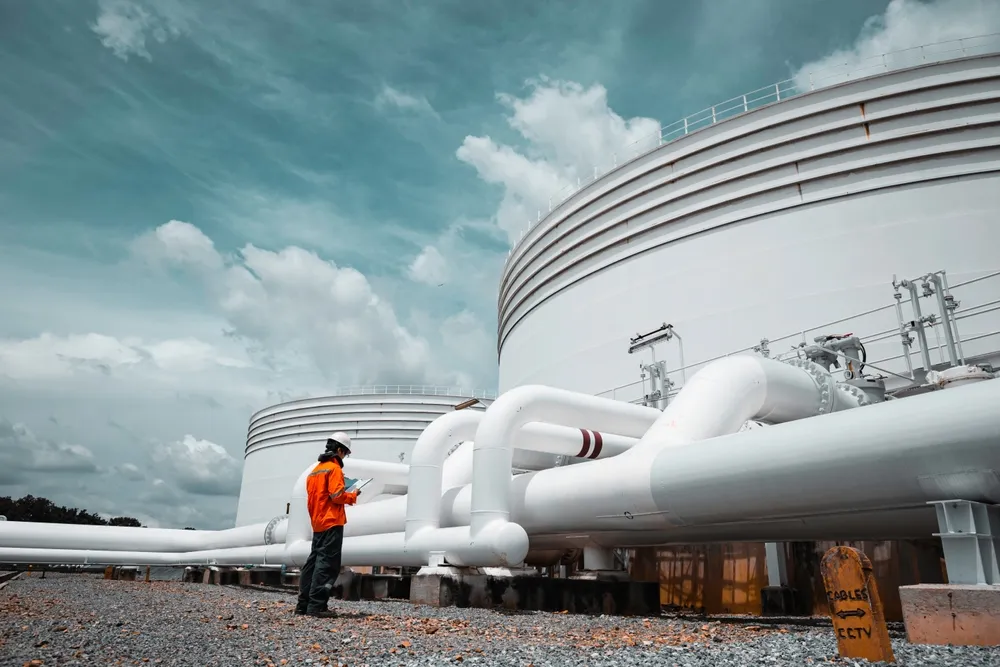Introduction:
The training in Gasoline Specifications, Testing, and Technology: A Comprehensive Overview provides a detailed exploration of the specifications, methodologies, technologies, and regulations related to gasoline. Participants will examine gasoline, its different types and components, throughout the motor gasoline and product value chain, with an emphasis on properties such as octane, volatility, drivability, and product quality assurance.
The training covers subjects including gasoline specifications, additives, oxygenates, the refining of gasoline, fuel quality, and the distribution of fuels. The course is designed to promote active participation, encouraging students to ask questions and interact with instructors and peers.
Participants will receive a presentation and notes workbook titled ASTM Significance of Tests for Petroleum Products - 2019, along with over 30 additional documents consisting of standards, test methods, specifications, and practices related to gasoline and oxygenates. Given the rapid changes in the industry, it is crucial to understand the implications of these trends for future fuel formulations and testing.
Furthermore, the course will investigate the latest breakthroughs in gasoline technology development and analyze the potential for these changes to enhance the industry, leading to more effective and greener transportation solutions. Participants will explore new gasoline technologies that challenge traditional views on fuel specifications, testing, and technology.
Objectives:
By the end of the Gasoline Specifications, Testing, and Technology: A Comprehensive Overview course, participants will be able to:
- Recognize the framework and arrangement of ASTM D4814, the Standard Specification for Automotive Spark Ignition Engine Fuel.
- Assess test results to determine whether gasoline, including Reformulated Gasoline (RFG), meets established criteria.
- Determine the effects of compositional variables, refining processes, and additives on octane and volatility characteristics.
- Reveal techniques for controlling product integrity from production and storage in the refinery to dispensing through a nozzle.
- Describe gasoline mixtures that include RFG, oxygenates, and ethanol.
- Analyze RFG, MSAT, Federal Renewable Fuel Standard, and other emissions-related fuel regulations.
- Propose and analyze current and future efforts in the petroleum industry toward conservation, emissions reduction, and carbon footprint reduction strategies.
Training Methodology:
- Discussions with moderators, colleagues, and trainees
- Group exercises and case histories
- Testing procedures presentation
- Seminars on ASTM procedures
- Processes related to gasoline formulation
- Quizzes and feedback
Course Outline:
Unit 1: Gasoline Composition
- Chemistry, production, and refining of motor gasoline (MG)
- Combining hydrocarbons, oxygenates (ethanol, ethers), and other components to meet MG specifications (octane, volatility)
Unit 2: Spark-Ignition Engine Overview
- Carburettor, port fuel injection (PFI), direct injection (DI)
- Anti-knock index, octane number scale, test methods, and gasoline specification (D4814)
- Octane number requirement increase (ORI) and enhancers (Pb and Mn, MTBE)
- Requirements for detergents in gasoline and climate adjustments
Unit 3: Vapor Pressure
- Vapor-liquid ratio tables 1, 3, and 4 of D4814
- ASTM volatility classifications, vapor lock, and volatility by region and season
- Distillation methods D86 and D7345
- Vapor pressure test methods D4953, D5191, D5842, D6378
- Volatility regulation impact
- Vapor lock and vapor-liquid ratio
Unit 4: Chemistry of Alcohols and Ethers
- Product specifications D4806 and D5798
- Effects of ethanol and other oxygenates when added to gasoline
- Impact on volatility, evaporative, and exhaust emissions
Unit 5: Cold and Hot Starting and Drivability
- CRC structure and organization relative to ASTM
- CRC programs on vehicle drivability
- Drivability indices and alternative equations
Unit 6: Gasoline Specs D4814 and Methods of Testing
- Standards for product sampling D4057 for testing
- Metals and sulfur testing
- Corrosion of copper and silver
- Contamination and gum test D381
Unit 7: Oxidation Stability and Its Test Methods
- Aromatics and olefins by FIA-1319
- Density manual and automatic test methods
Unit 8: Video Inspections / Visual Examination
- Phase separation and water sensitivity/tolerance
- Fuel contamination filtration and issues
- Corrosion of steel materials
- Sulphate analysis
Unit 9: Fuel Filtration and Dewatering Residuals
- Microbial contamination and induced corrosion
- Chemical compositions of different types of additives
- Oxidation and corrosion inhibiting agents and metal deactivators
Unit 10: Distribution of Gasoline Pipelines Rail Marine Truck Trailer
- Integrity maintenance testing of terminals, depots, and storage
- Long-term and off-road and emergency faithful maintenance
- Problems perceived by small engines
Unit 11: Reformulated Gasoline and the Renewable Fuel Standard Requirements
- Testing requirements of EPA and CARB
- Research emissions regulatory carbon monoxide control


















